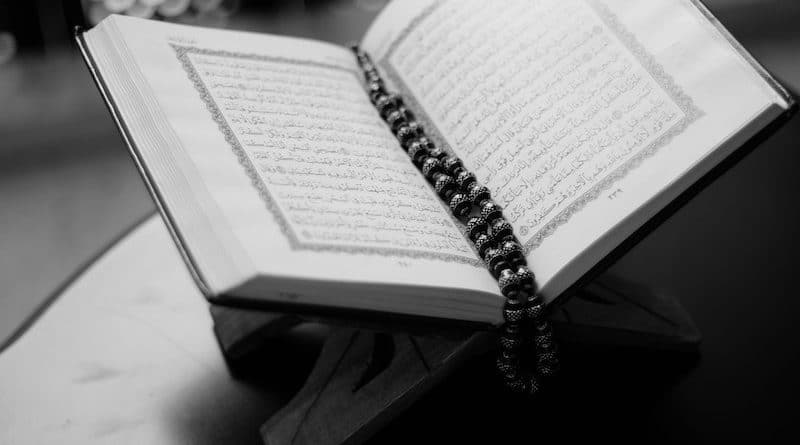Ramzan: A Time of Reflection, Devotion and Community
Ramzan is the ninth month of the Islamic calendar and a time of reflection, devotion, and community for Muslims around the world. It is a month of fasting, prayer, and spiritual renewal, during which Muslims abstain from food, drink, and other physical needs from dawn until sunset. Ramzan is a time of heightened spiritual awareness, a time to deepen one’s connection with Allah and one’s faith, and a time to remember those who are less fortunate.
In this article, we will explore the significance of Ramzan in the Islamic faith, the traditions and practices associated with this holy month, and the importance of community and charitable giving during Ramzan. Join us as we delve into the spirit of Ramzan and discover the beauty of this sacred time.
Ramzan holds great significance in the Islamic faith, as it is the month during which the Quran was first revealed to the Prophet Muhammad (PBUH). Muslims believe that during this month, the gates of heaven are open, the gates of hell are closed, and the devil is chained up. This allows Muslims to focus on their spirituality and reflect on their relationship with Allah without the distractions of worldly temptations.
Fasting during Ramzan
One of the central practices of Ramzan is fasting, which involves abstaining from food, drink, and other physical needs from dawn until sunset. Fasting is mandatory for all healthy adult Muslims who are able to fast, with the exception of those who are travelling, pregnant, nursing, or menstruating. Fasting is not just about refraining from physical needs, it is also about controlling one’s thoughts, emotions, and actions. Muslims are encouraged to refrain from negative behaviors such as lying, gossiping, and arguing during the month of Ramzan.
The Importance of Prayer and Reflection
Prayer is an integral part of Islam and is especially important during Ramzan. Muslims are required to pray five times a day, but during Ramzan, they are encouraged to pray more and to spend time reflecting on their faith and their relationship with Allah. This is a time for Muslims to deepen their spirituality, to seek forgiveness for their sins, and to ask for guidance and blessings from Allah.
Charity and Giving during Ramzan
Charity and giving are important aspects of Islam, and Ramzan is a time when Muslims are encouraged to give generously to those in need. Zakat, which is one of the five pillars of Islam, requires Muslims to give a portion of their wealth to those who are less fortunate. Sadaqah, which is voluntary charity, is also encouraged during Ramzan. Muslims are also encouraged to give food to those who are fasting, to feed the hungry, and to help those who are in need in any way possible. The act of giving during Ramzan not only benefits the recipient, but it also brings blessings and rewards for the giver.
The Celebration of Eid-ul-Fitr
The end of Ramzan is marked by the celebration of Eid-ul-Fitr, which is a time of joy and festivity for Muslims around the world. Eid-ul-Fitr is a three-day celebration that marks the end of the month of fasting and the beginning of the month of Shawwal. On the day of Eid-ul-Fitr, Muslims attend special prayer services, exchange gifts, and enjoy feasts with family and friends. It is a time to celebrate the spiritual accomplishments of the past month and to give thanks for the blessings of Allah.
FAQs:
Q. Is fasting during Ramzan mandatory for all Muslims?
A. Yes, fasting during Ramzan is mandatory for all healthy adult Muslims who are able to fast, with the exception of those who are travelling, pregnant, nursing, or menstruating.
Q. What is the significance of Zakat during Ramzan?
A. Zakat is one of the five pillars of Islam and requires Muslims to give a portion of their wealth to those who are less fortunate. Giving Zakat during Ramzan is considered to be especially important as it is a time of increased spiritual awareness and charitable giving.
Q. How is Eid-ul-Fitr celebrated?
A. Eid-ul-Fitr is celebrated with prayer services, gift exchanges, and feasts with family and friends. It is a time to celebrate the spiritual accomplishments of the past month and to give thanks for the blessings of Allah.
Conclusion:
Ramzan is a time of reflection, devotion, and community for Muslims around the world. The month of fasting, prayer, and spiritual renewal provides an opportunity for Muslims to deepen their connection with Allah and to remember those who are less fortunate. Through fasting, prayer, and charitable giving, Muslims seek to purify their hearts and souls and to cultivate a deeper sense of empathy and compassion for others. The celebration of Eid-ul-Fitr marks the end of this sacred time, but the lessons and values of Ramzan continue to guide and inspire Muslims throughout the year.

